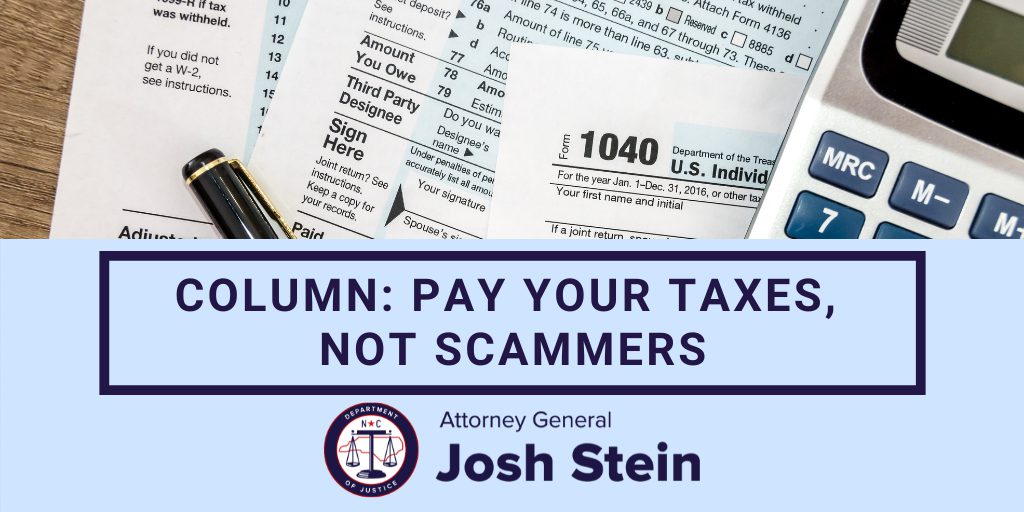
Attorney General Josh Stein
May 2021
This year, the IRS and the North Carolina Department of Revenue have both extended the deadline for filing your income taxes to May 17. That gives you more time to file your taxes, but it also gives scammers more time to try to trick you into sending them your money.
Every tax season, scammers will try to scam people by getting their W-2 information. Sometimes, they’ll spoof your company’s HR or accounting teams’ email addresses and request your employee information. They might also pretend to be the IRS and call or email you asking you to verify income or other tax-related information. If you’re not sure whether these messages are real, do NOT respond and check with your employer directly. If the email is not legitimate, you can report it to your IT department and the FBI’s Internet Crime Complaint Center.
Guard your personal and financial information closely during tax season. Your email is not a secure way to share information – don’t email or share your Social Security or bank account numbers. Don’t trust sudden emails that claim your tax refund is ready and available, or password resent links so you can claim your refund. Report unsolicited emails to phishing@irs.gov. If you’re using a website to e-file taxes, make sure it’s legitimate. Look for the lock icon next to the address bar and a URL that begins with https.
Do not trust anyone who calls you from the IRS and demands tax payments or threatens you with arrest if you don’t pay immediately. Legitimate government officials do NOT contact you to threaten arrest. If the IRS needs to contact you about your tax debt, it will do so via a letter. Don’t answer these calls or respond to these messages. You can always call the IRS directly with questions. And if these callers are asking you to pay what you owe through a prepaid debit card, gift card, or by wire transfer, hang up! It’s definitely a scam.
Scammers will also try to get their hands on your tax refunds by filing tax returns in your name and then collecting your money. If you receive a notice from the IRS stating that more than one tax return was filed in your name, contact the IRS immediately using the contact information available in the letter.
It has been a year of immense financial hardships for so many North Carolinians. Losing your tax refunds or identity to a scammer would only add to your pain. Please protect your personal and financial information, and if you think you or someone you know has been the victim of an IRS scam, file a complaint with our office at 1-877-5-NO-SCAM or https://ncdoj.gov/complaint.
